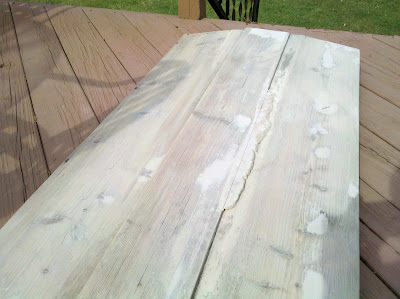The clatter of a few keystrokes, the click of a mouse, the tap of a finger on the glowing screen, are all it takes to record something in an electronic form. Facebook, Twitter, Instagram, Tumblr, Pinterest, (as well as their forerunners like MySpace), have made sharing photos, graphics, information, events, opinions, ideas, and memories utterly simple. The time it takes to share something is immeasurable against the time it takes to write, to paint, to photograph, to create what is being shared. We, as Americans -and indeed, most of those around the world- live in the present second, for the moment is too long now, moving from one second to the next, and not looking back -and yet, we do so at our own peril.
There is nothing wrong with seeking to advance, with looking forward. There has always been a new dawn to look forward to in America. And we know this by dredging the dust-covered trail of faded letters, of the crackle of dry diary pages, of the ancient and physical mark the previous generations left behind them, with their eyes fixed toward the future. What was once written in hope by oil light is is now read beneath the bright glare of the LED bulb. What was carefully and lovingly painted on canvas is now studied in passing as a digital image on a laptop. What was once carefully set in type for print on paper is now perused with the swish of a finger on an e-reader. Yet, we have little patience for the anticipations, the ruminations, the expectations, and the aspirations of those who have passed before us, so encapsulated are we in the present and in our current conditions.
Our own experiences, which can be as fast as electric current, also largely depend upon electric current for existence. Digital art, digital images, e-books, e-mail, text messages -all of them depend upon an electrically-powered technological world for sustenance and reception, and can vanish in an instant. A video of a baby's first steps can be forever lost when a computer crashes. A blog of years of journal-like entries can be accidentally deleted with the push of a wrong button. A thousand pieces of beloved music can be lost along with an iPod.
Just as our own recordings and products of our existence can be stricken, so too could the records and products of our ancestors, by flood and by fire. But our grasp on the present is ever more so tenuous, for we do not invest ourselves in physical products of our time. The personal products of our existence can be shared as quickly and as easily as they can be destroyed.
The time it took to invest and share something -a letter to a loved one, say -also meant that what was shared -the letter- was treasured and carefully kept. Time had been spent on writing it, and time was spent on preserving it, for one reason or another. It was something to be valued, something that said what it meant; printed and transfixed, it could not be changed or edited.
When our grandchildren seek to learn about this present day and age, what will they find? What will we have to show that we were here? Certainly there will be few, if any, boxes of collected letters, diaries, and writings attesting to our experiences. A desktop computer, full of such memories, may be unusable in 2080, and might only still be operable if we are so lucky. But a physical, hand-written, typed, or printed letter, written by the light of any age, can be read by the light of any age.
In our effort to be a part of the present, we have forgotten about what will become the past. In our efforts to keep up, to keep current, to keep fresh, we have forgotten to put our feet down onto the solid earth, to leave something lasting behind -or to preserve anything. We are so obsessed with writing our own story, that we are forgetting to actually write our story. Where we do touch the ground, our footprints are as light as spring blossoms, and less likely to survive the tide of the first rainstorm.
Rightly or wrongly, we will be viewed by posterity as generation that at once both lived, and did not live. For what proof can we offer that we existed at all? Our moments are disappearing because we refuse to have anything to say about it. I sometimes wonder if there is more of a record found among scattered cave paintings from several thousand years ago, of that race of men, than being prepared by our own today.
I have concluded that one day, electronic documents such as the one which you are now reading, I shall either print out and store away, or I shall transfer them into a file for publishing in a private volume. That way, if computers cannot be operated a hundred years from now, there will still be lamplight or sunlight left to read by.













